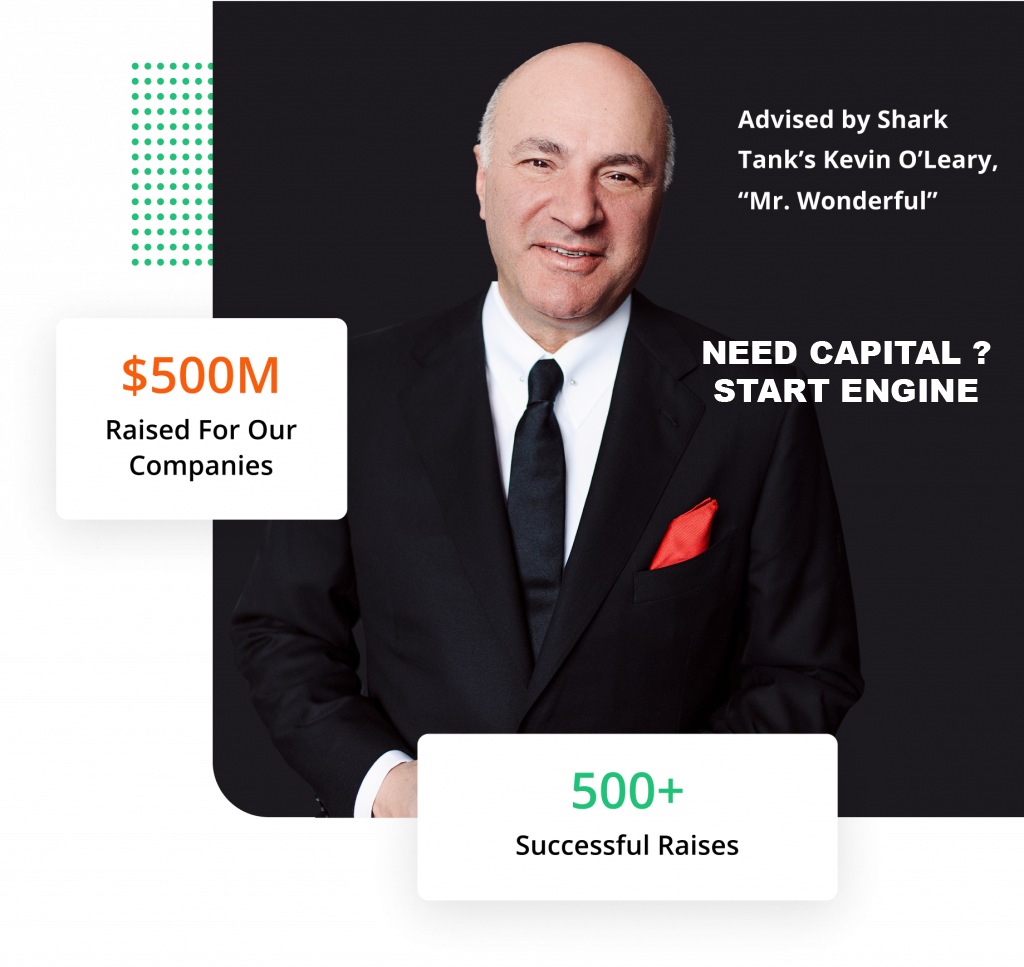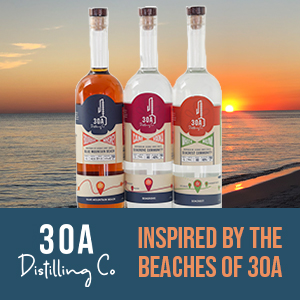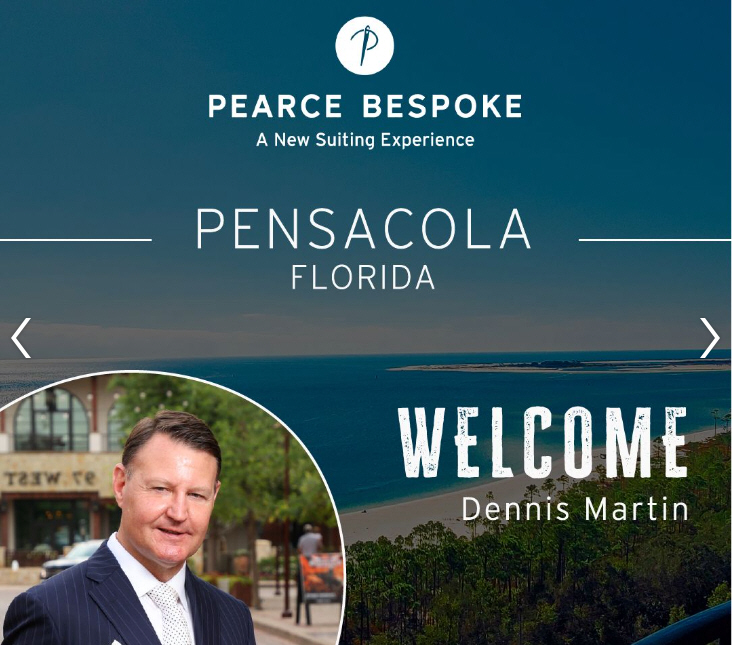Post Views: 139

Second Lawsuit Filed Against Kenneth R. Feinberg, Feinberg Rozen, LLP and Gulf Coast Claims Facility
Categories: BP, Feinberg, GCCF, Gulf Coast Claims Facility, lawsuit, Litigation, Oil Spill Liability Trust Fund, OPA | URL: http://wp.me/pFTAn-5E
Second Lawsuit Filed Against Kenneth R. Feinberg, Feinberg Rozen, LLP and
Gulf Coast Claims Facility
__________________
Complaint Alleges Gross Negligence, Fraud, Fraudulent Inducement and Unjust Enrichment
Tampa, FL (June 21, 2011) – A second lawsuit has been filed in state court in Florida against Kenneth R. Feinberg, Feinberg Rozen, LLP and Gulf Coast Claims Facility (“GCCF”). The 38-page complaint was filed on June 15, 2011 in the Circuit Court of the Twentieth Judicial Circuit in and for Lee County, Florida by Tampa attorney Brian J. Donovan on behalf of Mr. Selmer M. Salvesen. The complaint alleges, in part, gross negligence, fraud, fraudulent inducement and unjust enrichment on the part of the defendants (Case No. 11-CA-002008).
Mr. Salvesen is the sole proprietor of a business engaged in aquaculture, specifically the growing of farm-raised hard-shell clams on sovereignty submerged land leased from the State of Florida. As a result of the actions of the defendants, Mr. Salvesen’s aquaculture business is struggling to survive.
Feinberg, acting through and as Managing Partner of Feinberg Rozen, established GCCF to independently administer and where appropriate settle and authorize the payment of certain claims asserted against BP as a result of the explosion at the Deepwater Horizon rig and consequent spillage of oil into the Gulf of Mexico.
The complaint alleges, in part, that Defendants misled Mr. Salvesen by employing a “Delay, Deny, Defend” strategy against him. This strategy, commonly used by unscrupulous insurance companies, is as follows: “Delay payment, starve claimant, and then offer the economically and emotionally-stressed claimant a miniscule percent of all damages to which the claimant is entitled. If the financially ruined claimant rejects the settlement offer, he or she may sue.”
On April 22, 2011, 274 days after Mr. Salvesen presented a claim for damages to BP, GCCF finally denied his claim. This is in keeping with the “Delay, Deny, Defend” strategy alleged by Mr. Salvesen in his complaint – delay 274 days, deny compensation, then say to the claimant, “sue us.”
Mr. Salvesen is not able to sue Defendants under the Oil Pollution Act of 1990 (“OPA”) because his damages did not “result from” the oil spill and Defendants are not “responsible parties.” Defendants are independent contractors that administer, settle and authorize the payment of certain claims asserted against BP, the “responsible party.” Here, Defendants’ “Delay, Deny, Defend” strategy and associated tortious acts, not acts by BP, resulted in the financial ruin of Mr. Salvesen.
According to Donovan, GCCF without any legal authority for doing so, circumvents many of the rights provided to victims of the BP oil spill under the OPA. Under OPA, responsible parties for an oil spill are strictly liable for the payment of claims for specified damages. In order to recover damages, a claimant merely needs to show that his or her damages “resulted from” the oil spill. OPA states, “The responsible party for a vessel or a facility from which oil is discharged, or which poses the substantial threat of a discharge of oil, into or upon the navigable waters or adjoining shorelines or the exclusive economic zone is liable for the removal costs and damages that result from such incident.” These damages include, but are not limited to: “Damages equal to the loss of profits or impairment of earning capacity due to the injury, destruction, or loss of real property, personal property, or natural resources, which shall be recoverable by any claimant.”
Defendants, who cannot cite to a single authority, statutory provision, or fragment of legislative history supporting their position, argue that (a) “OPA imposes no duty on responsible parties other than to establish and advertise a process for receiving claims, not that they actually settle claims;” and (b) “OPA says nothing about how a claims process should work. It simply requires that the claimant and the responsible party have a chance to consider a settlement before the claimant may sue.”
“The overarching purpose of OPA’s mandatory alternative dispute resolution process is ‘to encourage settlement and avoid litigation.'” Boca Ciega Hotel, Inc. v. Bouchard Trans. Co., 51 F. 3d 235, 240 (11th Cir. 1995).
Defendants’ “Delay, Deny, Defend” strategy avoids settlement and encourages litigation. In addition to Mr. Salvesen’s lawsuit, this strategy by GCCF has resulted in more than 130,000 BP oil spill victims being forced to become Plaintiffs in MDL 2179.
Mr. Salvesen seeks economic and compensatory damages, in amounts to be determined at trial, and punitive damages.
DONOVAN LAW GROUP
http://donovanlawgroup.wordpress.com/about/
Second Lawsuit Filed Against Kenneth R. Feinberg, Feinberg Rozen, LLP and Gulf Coast Claims Facility
 Second Lawsuit Filed Against Kenneth R. Feinberg, Feinberg Rozen, LLP and Gulf Coast Claims Facility
Categories: BP, Feinberg, GCCF, Gulf Coast Claims Facility, lawsuit, Litigation, Oil Spill Liability Trust Fund, OPA | URL: http://wp.me/pFTAn-5E
Second Lawsuit Filed Against Kenneth R. Feinberg, Feinberg Rozen, LLP and
Gulf Coast Claims Facility
__________________
Complaint Alleges Gross Negligence, Fraud, Fraudulent Inducement and Unjust Enrichment
Tampa, FL (June 21, 2011) – A second lawsuit has been filed in state court in Florida against Kenneth R. Feinberg, Feinberg Rozen, LLP and Gulf Coast Claims Facility (“GCCF”). The 38-page complaint was filed on June 15, 2011 in the Circuit Court of the Twentieth Judicial Circuit in and for Lee County, Florida by Tampa attorney Brian J. Donovan on behalf of Mr. Selmer M. Salvesen. The complaint alleges, in part, gross negligence, fraud, fraudulent inducement and unjust enrichment on the part of the defendants (Case No. 11-CA-002008).
Mr. Salvesen is the sole proprietor of a business engaged in aquaculture, specifically the growing of farm-raised hard-shell clams on sovereignty submerged land leased from the State of Florida. As a result of the actions of the defendants, Mr. Salvesen’s aquaculture business is struggling to survive.
Feinberg, acting through and as Managing Partner of Feinberg Rozen, established GCCF to independently administer and where appropriate settle and authorize the payment of certain claims asserted against BP as a result of the explosion at the Deepwater Horizon rig and consequent spillage of oil into the Gulf of Mexico.
The complaint alleges, in part, that Defendants misled Mr. Salvesen by employing a “Delay, Deny, Defend” strategy against him. This strategy, commonly used by unscrupulous insurance companies, is as follows: “Delay payment, starve claimant, and then offer the economically and emotionally-stressed claimant a miniscule percent of all damages to which the claimant is entitled. If the financially ruined claimant rejects the settlement offer, he or she may sue.”
On April 22, 2011, 274 days after Mr. Salvesen presented a claim for damages to BP, GCCF finally denied his claim. This is in keeping with the “Delay, Deny, Defend” strategy alleged by Mr. Salvesen in his complaint – delay 274 days, deny compensation, then say to the claimant, “sue us.”
Mr. Salvesen is not able to sue Defendants under the Oil Pollution Act of 1990 (“OPA”) because his damages did not “result from” the oil spill and Defendants are not “responsible parties.” Defendants are independent contractors that administer, settle and authorize the payment of certain claims asserted against BP, the “responsible party.” Here, Defendants’ “Delay, Deny, Defend” strategy and associated tortious acts, not acts by BP, resulted in the financial ruin of Mr. Salvesen.
According to Donovan, GCCF without any legal authority for doing so, circumvents many of the rights provided to victims of the BP oil spill under the OPA. Under OPA, responsible parties for an oil spill are strictly liable for the payment of claims for specified damages. In order to recover damages, a claimant merely needs to show that his or her damages “resulted from” the oil spill. OPA states, “The responsible party for a vessel or a facility from which oil is discharged, or which poses the substantial threat of a discharge of oil, into or upon the navigable waters or adjoining shorelines or the exclusive economic zone is liable for the removal costs and damages that result from such incident.” These damages include, but are not limited to: “Damages equal to the loss of profits or impairment of earning capacity due to the injury, destruction, or loss of real property, personal property, or natural resources, which shall be recoverable by any claimant.”
Defendants, who cannot cite to a single authority, statutory provision, or fragment of legislative history supporting their position, argue that (a) “OPA imposes no duty on responsible parties other than to establish and advertise a process for receiving claims, not that they actually settle claims;” and (b) “OPA says nothing about how a claims process should work. It simply requires that the claimant and the responsible party have a chance to consider a settlement before the claimant may sue.”
“The overarching purpose of OPA’s mandatory alternative dispute resolution process is ‘to encourage settlement and avoid litigation.'” Boca Ciega Hotel, Inc. v. Bouchard Trans. Co., 51 F. 3d 235, 240 (11th Cir. 1995).
Defendants’ “Delay, Deny, Defend” strategy avoids settlement and encourages litigation. In addition to Mr. Salvesen’s lawsuit, this strategy by GCCF has resulted in more than 130,000 BP oil spill victims being forced to become Plaintiffs in MDL 2179.
Mr. Salvesen seeks economic and compensatory damages, in amounts to be determined at trial, and punitive damages.
DONOVAN LAW GROUP
http://donovanlawgroup.wordpress.com/about/
Second Lawsuit Filed Against Kenneth R. Feinberg, Feinberg Rozen, LLP and Gulf Coast Claims Facility
Categories: BP, Feinberg, GCCF, Gulf Coast Claims Facility, lawsuit, Litigation, Oil Spill Liability Trust Fund, OPA | URL: http://wp.me/pFTAn-5E
Second Lawsuit Filed Against Kenneth R. Feinberg, Feinberg Rozen, LLP and
Gulf Coast Claims Facility
__________________
Complaint Alleges Gross Negligence, Fraud, Fraudulent Inducement and Unjust Enrichment
Tampa, FL (June 21, 2011) – A second lawsuit has been filed in state court in Florida against Kenneth R. Feinberg, Feinberg Rozen, LLP and Gulf Coast Claims Facility (“GCCF”). The 38-page complaint was filed on June 15, 2011 in the Circuit Court of the Twentieth Judicial Circuit in and for Lee County, Florida by Tampa attorney Brian J. Donovan on behalf of Mr. Selmer M. Salvesen. The complaint alleges, in part, gross negligence, fraud, fraudulent inducement and unjust enrichment on the part of the defendants (Case No. 11-CA-002008).
Mr. Salvesen is the sole proprietor of a business engaged in aquaculture, specifically the growing of farm-raised hard-shell clams on sovereignty submerged land leased from the State of Florida. As a result of the actions of the defendants, Mr. Salvesen’s aquaculture business is struggling to survive.
Feinberg, acting through and as Managing Partner of Feinberg Rozen, established GCCF to independently administer and where appropriate settle and authorize the payment of certain claims asserted against BP as a result of the explosion at the Deepwater Horizon rig and consequent spillage of oil into the Gulf of Mexico.
The complaint alleges, in part, that Defendants misled Mr. Salvesen by employing a “Delay, Deny, Defend” strategy against him. This strategy, commonly used by unscrupulous insurance companies, is as follows: “Delay payment, starve claimant, and then offer the economically and emotionally-stressed claimant a miniscule percent of all damages to which the claimant is entitled. If the financially ruined claimant rejects the settlement offer, he or she may sue.”
On April 22, 2011, 274 days after Mr. Salvesen presented a claim for damages to BP, GCCF finally denied his claim. This is in keeping with the “Delay, Deny, Defend” strategy alleged by Mr. Salvesen in his complaint – delay 274 days, deny compensation, then say to the claimant, “sue us.”
Mr. Salvesen is not able to sue Defendants under the Oil Pollution Act of 1990 (“OPA”) because his damages did not “result from” the oil spill and Defendants are not “responsible parties.” Defendants are independent contractors that administer, settle and authorize the payment of certain claims asserted against BP, the “responsible party.” Here, Defendants’ “Delay, Deny, Defend” strategy and associated tortious acts, not acts by BP, resulted in the financial ruin of Mr. Salvesen.
According to Donovan, GCCF without any legal authority for doing so, circumvents many of the rights provided to victims of the BP oil spill under the OPA. Under OPA, responsible parties for an oil spill are strictly liable for the payment of claims for specified damages. In order to recover damages, a claimant merely needs to show that his or her damages “resulted from” the oil spill. OPA states, “The responsible party for a vessel or a facility from which oil is discharged, or which poses the substantial threat of a discharge of oil, into or upon the navigable waters or adjoining shorelines or the exclusive economic zone is liable for the removal costs and damages that result from such incident.” These damages include, but are not limited to: “Damages equal to the loss of profits or impairment of earning capacity due to the injury, destruction, or loss of real property, personal property, or natural resources, which shall be recoverable by any claimant.”
Defendants, who cannot cite to a single authority, statutory provision, or fragment of legislative history supporting their position, argue that (a) “OPA imposes no duty on responsible parties other than to establish and advertise a process for receiving claims, not that they actually settle claims;” and (b) “OPA says nothing about how a claims process should work. It simply requires that the claimant and the responsible party have a chance to consider a settlement before the claimant may sue.”
“The overarching purpose of OPA’s mandatory alternative dispute resolution process is ‘to encourage settlement and avoid litigation.'” Boca Ciega Hotel, Inc. v. Bouchard Trans. Co., 51 F. 3d 235, 240 (11th Cir. 1995).
Defendants’ “Delay, Deny, Defend” strategy avoids settlement and encourages litigation. In addition to Mr. Salvesen’s lawsuit, this strategy by GCCF has resulted in more than 130,000 BP oil spill victims being forced to become Plaintiffs in MDL 2179.
Mr. Salvesen seeks economic and compensatory damages, in amounts to be determined at trial, and punitive damages.
DONOVAN LAW GROUP
http://donovanlawgroup.wordpress.com/about/
 Second Lawsuit Filed Against Kenneth R. Feinberg, Feinberg Rozen, LLP and Gulf Coast Claims Facility
Categories: BP, Feinberg, GCCF, Gulf Coast Claims Facility, lawsuit, Litigation, Oil Spill Liability Trust Fund, OPA | URL: http://wp.me/pFTAn-5E
Second Lawsuit Filed Against Kenneth R. Feinberg, Feinberg Rozen, LLP and
Gulf Coast Claims Facility
__________________
Complaint Alleges Gross Negligence, Fraud, Fraudulent Inducement and Unjust Enrichment
Tampa, FL (June 21, 2011) – A second lawsuit has been filed in state court in Florida against Kenneth R. Feinberg, Feinberg Rozen, LLP and Gulf Coast Claims Facility (“GCCF”). The 38-page complaint was filed on June 15, 2011 in the Circuit Court of the Twentieth Judicial Circuit in and for Lee County, Florida by Tampa attorney Brian J. Donovan on behalf of Mr. Selmer M. Salvesen. The complaint alleges, in part, gross negligence, fraud, fraudulent inducement and unjust enrichment on the part of the defendants (Case No. 11-CA-002008).
Mr. Salvesen is the sole proprietor of a business engaged in aquaculture, specifically the growing of farm-raised hard-shell clams on sovereignty submerged land leased from the State of Florida. As a result of the actions of the defendants, Mr. Salvesen’s aquaculture business is struggling to survive.
Feinberg, acting through and as Managing Partner of Feinberg Rozen, established GCCF to independently administer and where appropriate settle and authorize the payment of certain claims asserted against BP as a result of the explosion at the Deepwater Horizon rig and consequent spillage of oil into the Gulf of Mexico.
The complaint alleges, in part, that Defendants misled Mr. Salvesen by employing a “Delay, Deny, Defend” strategy against him. This strategy, commonly used by unscrupulous insurance companies, is as follows: “Delay payment, starve claimant, and then offer the economically and emotionally-stressed claimant a miniscule percent of all damages to which the claimant is entitled. If the financially ruined claimant rejects the settlement offer, he or she may sue.”
On April 22, 2011, 274 days after Mr. Salvesen presented a claim for damages to BP, GCCF finally denied his claim. This is in keeping with the “Delay, Deny, Defend” strategy alleged by Mr. Salvesen in his complaint – delay 274 days, deny compensation, then say to the claimant, “sue us.”
Mr. Salvesen is not able to sue Defendants under the Oil Pollution Act of 1990 (“OPA”) because his damages did not “result from” the oil spill and Defendants are not “responsible parties.” Defendants are independent contractors that administer, settle and authorize the payment of certain claims asserted against BP, the “responsible party.” Here, Defendants’ “Delay, Deny, Defend” strategy and associated tortious acts, not acts by BP, resulted in the financial ruin of Mr. Salvesen.
According to Donovan, GCCF without any legal authority for doing so, circumvents many of the rights provided to victims of the BP oil spill under the OPA. Under OPA, responsible parties for an oil spill are strictly liable for the payment of claims for specified damages. In order to recover damages, a claimant merely needs to show that his or her damages “resulted from” the oil spill. OPA states, “The responsible party for a vessel or a facility from which oil is discharged, or which poses the substantial threat of a discharge of oil, into or upon the navigable waters or adjoining shorelines or the exclusive economic zone is liable for the removal costs and damages that result from such incident.” These damages include, but are not limited to: “Damages equal to the loss of profits or impairment of earning capacity due to the injury, destruction, or loss of real property, personal property, or natural resources, which shall be recoverable by any claimant.”
Defendants, who cannot cite to a single authority, statutory provision, or fragment of legislative history supporting their position, argue that (a) “OPA imposes no duty on responsible parties other than to establish and advertise a process for receiving claims, not that they actually settle claims;” and (b) “OPA says nothing about how a claims process should work. It simply requires that the claimant and the responsible party have a chance to consider a settlement before the claimant may sue.”
“The overarching purpose of OPA’s mandatory alternative dispute resolution process is ‘to encourage settlement and avoid litigation.'” Boca Ciega Hotel, Inc. v. Bouchard Trans. Co., 51 F. 3d 235, 240 (11th Cir. 1995).
Defendants’ “Delay, Deny, Defend” strategy avoids settlement and encourages litigation. In addition to Mr. Salvesen’s lawsuit, this strategy by GCCF has resulted in more than 130,000 BP oil spill victims being forced to become Plaintiffs in MDL 2179.
Mr. Salvesen seeks economic and compensatory damages, in amounts to be determined at trial, and punitive damages.
DONOVAN LAW GROUP
http://donovanlawgroup.wordpress.com/about/
Second Lawsuit Filed Against Kenneth R. Feinberg, Feinberg Rozen, LLP and Gulf Coast Claims Facility
Categories: BP, Feinberg, GCCF, Gulf Coast Claims Facility, lawsuit, Litigation, Oil Spill Liability Trust Fund, OPA | URL: http://wp.me/pFTAn-5E
Second Lawsuit Filed Against Kenneth R. Feinberg, Feinberg Rozen, LLP and
Gulf Coast Claims Facility
__________________
Complaint Alleges Gross Negligence, Fraud, Fraudulent Inducement and Unjust Enrichment
Tampa, FL (June 21, 2011) – A second lawsuit has been filed in state court in Florida against Kenneth R. Feinberg, Feinberg Rozen, LLP and Gulf Coast Claims Facility (“GCCF”). The 38-page complaint was filed on June 15, 2011 in the Circuit Court of the Twentieth Judicial Circuit in and for Lee County, Florida by Tampa attorney Brian J. Donovan on behalf of Mr. Selmer M. Salvesen. The complaint alleges, in part, gross negligence, fraud, fraudulent inducement and unjust enrichment on the part of the defendants (Case No. 11-CA-002008).
Mr. Salvesen is the sole proprietor of a business engaged in aquaculture, specifically the growing of farm-raised hard-shell clams on sovereignty submerged land leased from the State of Florida. As a result of the actions of the defendants, Mr. Salvesen’s aquaculture business is struggling to survive.
Feinberg, acting through and as Managing Partner of Feinberg Rozen, established GCCF to independently administer and where appropriate settle and authorize the payment of certain claims asserted against BP as a result of the explosion at the Deepwater Horizon rig and consequent spillage of oil into the Gulf of Mexico.
The complaint alleges, in part, that Defendants misled Mr. Salvesen by employing a “Delay, Deny, Defend” strategy against him. This strategy, commonly used by unscrupulous insurance companies, is as follows: “Delay payment, starve claimant, and then offer the economically and emotionally-stressed claimant a miniscule percent of all damages to which the claimant is entitled. If the financially ruined claimant rejects the settlement offer, he or she may sue.”
On April 22, 2011, 274 days after Mr. Salvesen presented a claim for damages to BP, GCCF finally denied his claim. This is in keeping with the “Delay, Deny, Defend” strategy alleged by Mr. Salvesen in his complaint – delay 274 days, deny compensation, then say to the claimant, “sue us.”
Mr. Salvesen is not able to sue Defendants under the Oil Pollution Act of 1990 (“OPA”) because his damages did not “result from” the oil spill and Defendants are not “responsible parties.” Defendants are independent contractors that administer, settle and authorize the payment of certain claims asserted against BP, the “responsible party.” Here, Defendants’ “Delay, Deny, Defend” strategy and associated tortious acts, not acts by BP, resulted in the financial ruin of Mr. Salvesen.
According to Donovan, GCCF without any legal authority for doing so, circumvents many of the rights provided to victims of the BP oil spill under the OPA. Under OPA, responsible parties for an oil spill are strictly liable for the payment of claims for specified damages. In order to recover damages, a claimant merely needs to show that his or her damages “resulted from” the oil spill. OPA states, “The responsible party for a vessel or a facility from which oil is discharged, or which poses the substantial threat of a discharge of oil, into or upon the navigable waters or adjoining shorelines or the exclusive economic zone is liable for the removal costs and damages that result from such incident.” These damages include, but are not limited to: “Damages equal to the loss of profits or impairment of earning capacity due to the injury, destruction, or loss of real property, personal property, or natural resources, which shall be recoverable by any claimant.”
Defendants, who cannot cite to a single authority, statutory provision, or fragment of legislative history supporting their position, argue that (a) “OPA imposes no duty on responsible parties other than to establish and advertise a process for receiving claims, not that they actually settle claims;” and (b) “OPA says nothing about how a claims process should work. It simply requires that the claimant and the responsible party have a chance to consider a settlement before the claimant may sue.”
“The overarching purpose of OPA’s mandatory alternative dispute resolution process is ‘to encourage settlement and avoid litigation.'” Boca Ciega Hotel, Inc. v. Bouchard Trans. Co., 51 F. 3d 235, 240 (11th Cir. 1995).
Defendants’ “Delay, Deny, Defend” strategy avoids settlement and encourages litigation. In addition to Mr. Salvesen’s lawsuit, this strategy by GCCF has resulted in more than 130,000 BP oil spill victims being forced to become Plaintiffs in MDL 2179.
Mr. Salvesen seeks economic and compensatory damages, in amounts to be determined at trial, and punitive damages.
DONOVAN LAW GROUP
http://donovanlawgroup.wordpress.com/about/























